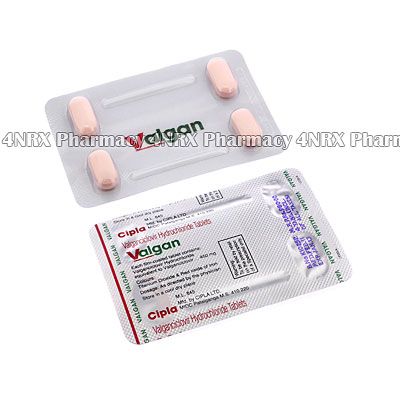 |
Home  HIV Treatments HIV Treatments  Valgan (Valganciclovir) Valgan (Valganciclovir) |
|
|||||||||
|
Valgan (Valganciclovir)
What is Valgan (Valganciclovir) used for? Valgan (Valganciclovir) is a type of anti-viral drug that is used to prevent a virus known as cytomegalovirus (CMV) in patients who have received organ transplants, and also to treat CMV retinitis in patients suffering from AIDS, thereby reducing the risk of blindness. It works by inhibiting the growth of the virus, while also helping to prevent the infection from spreading throughout the body. Researchers have suggested that this drug may be useful in treating chronic fatigue syndrome, however the effectiveness of this drug in treating this has yet to be fully researched and proven. How should I use Valgan (Valganciclovir)? Valgan (Valganciclovir) tablets are swallowed whole with a glass of water. Patients may take them with food. Adult patients are sometimes directed to take this drug 1 to 2 times daily. The exact dosage required varies, depending on the patient's weight, kidney function and various other factors. Therefore, patients must always consult their physician before taking this medication so that the correct dosage can be prescribed to them. It is important not to alter the prescribed dosage or cease taking this medication unless instructed to do so by your physician, as doing so increases the risk of side effects. What are the side effects of Valgan (Valganciclovir)? Valgan (Valganciclovir) may cause side effects to occur, such as:
Patients should immediately consult their physician if any of these side effects persist or worsen, or if they notice other more serious side effects, such as changes in mood, changes in urination, unusual bruising or bleeding, breathlessness, seizures or hallucinations. Please Note Strictly follow all instructions provided to you by your physician or pharmacist while using Valgan (Valganciclovir). Optimum and safe dosage can differ based on the patient and the condition being treated. As this medication may be unsafe for certain patients, it is essential you always inform your physician if you are pregnant or breastfeeding, as well as if you have any allergies, other illnesses, or ongoing health conditions, and if you are taking any other form of medication, supplements, or herbal products. While taking this medication, you should not have any vaccines, and you should also avoid contact with patients who have recently been given vaccines. Immediately seek emergency medical care if you have any allergic or hypersensitive reaction. Common signs of a reaction include hives, swelling, skin rashes, chest pains, as well as trouble breathing or swallowing. 

|
|||||||||||||||||